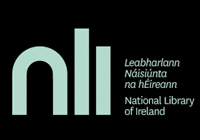
Synopsis
From the early 1970s through the mid-1990s, Northern Ireland was the site of bitter conflict between those struggling for reunification with the rest of Ireland and those wanting the region to remain a part of the United Kingdom. After years of strenuous negotiations, nationalists and unionists came together in 1998 to sign the Good Friday Agreement. Northern Ireland’s peace process has been deemed largely successful. Yet remarkably little has been done to assess in a comprehensive fashion what can be learned from it.
Lessons from the Northern Ireland Peace Process incorporates recent research that emphasizes the need for civil society and a grassroots approach to peacebuilding while taking into account a variety of perspectives, including neoconservatism and revolutionary analysis. The contributions, which include the reflections of those involved in the negotiation and implementation of the Good Friday Agreement, also provide policy prescriptions for modern conflicts.
About the Author
Timothy J. White is professor of political science at Xavier University. His articles on the peace process in Northern Ireland have appeared in Dynamics of Asymmetric Conflict, British Politics Review, and Peace Review. He was a visiting fellow at the Moore Institute at the National University of Ireland Galway.
For more information regarding publicity and reviews contact our publicity manager, phone: (608) 263-0734, email:






